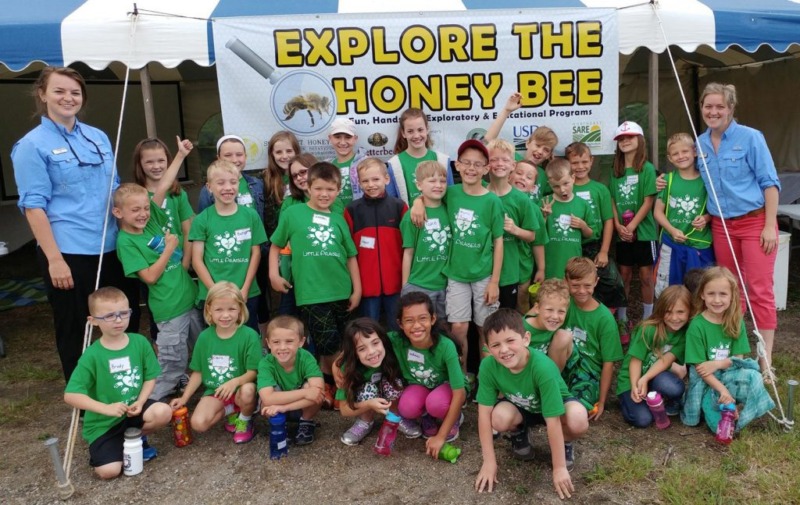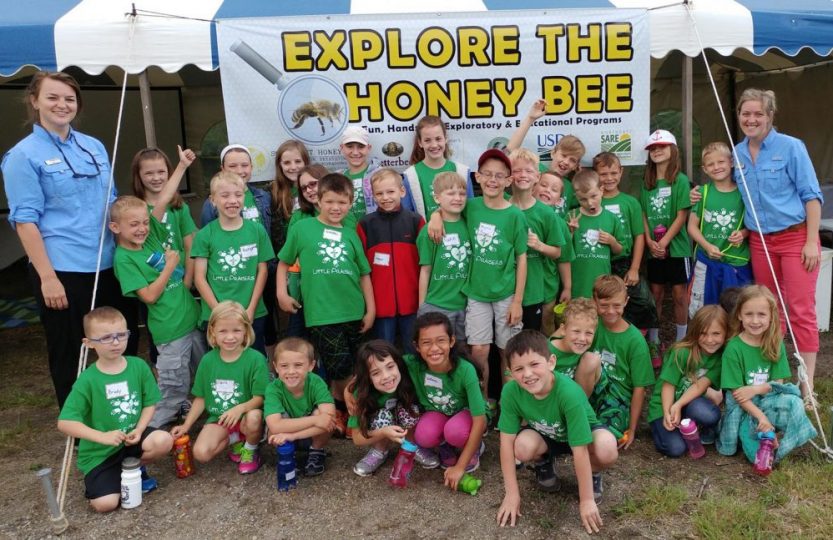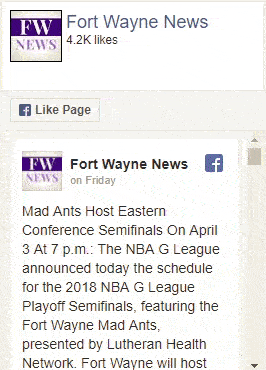 Southwest Honey Co. recently completed a 2-year USDA study designed to evaluate changes residents hope to make to benefit pollinators, local growers and the environment. The organization accomplished this through an innovative pollinator appreciation program that took a hands-on approach to teaching students of all ages.
Southwest Honey Co. recently completed a 2-year USDA study designed to evaluate changes residents hope to make to benefit pollinators, local growers and the environment. The organization accomplished this through an innovative pollinator appreciation program that took a hands-on approach to teaching students of all ages.
Throughout 2016 and 2017, Southwest Honey Co.’s educational programs attracted 2,194 participants from primarily the Northeast Indiana region. Highlighting the honey bee, students participated in a fun, scientific and hands-on approach to learning about pollinators’ connection to the food we and our animals eat and that we likely take for granted. Program types included those for children titled “Explore the Honey Bee,” for adults “Bees & Brew” and for seniors “Bees & Tea.” The programs were held in many learning environments, including The Southwest Conservation Club, all the Allen County Library Branches, as well as area summer school programs and community centers. Although classes were lighthearted in presentation, they served to address a serious problem, which was to inform the public about the decline of pollinators, why we need them, and what the average person can do to help through small changes at home.
“As a full-time teacher, I donate much of my summer break to helping teach the community about pollinators. It is so meaningful to me when I see the spark in a student’s eyes and know that they have made the connection that without pollinators their favorite fruit may not be available. They say, ‘Oh my gosh! We have to help bees and butterflies.’ I believe that the public has become disconnected about where our food comes from. Our volunteers are dedicated to changing that through education; while taking that education a step further to encourage our participants to change habits that hurt pollinators to ones that help them.” Megan Ryan, Education Director of Southwest Honey Co. commented.
The study, titled “Benefiting the Symbiotic Relationship Between Farmers, Ranchers and Honeybees through Consumer Education with an Emphasis on Beekeeping and Pollinators,” was granted by NCR Sustainable Agriculture Research and Education (SARE), which is a division of the USDA. The study hypothesized that this type of innovative and personalized education would assist declining honey bee populations. This project also addressed related problems including the lack of regional opportunities for comprehensive pollinator education, awareness of honey bee population decline, and awareness of actions consumers can take to benefit pollinators.
Throughout the study timeline, adult participants were surveyed with questions regarding their home’s land use and chemical treatment, local produce shopping, gardening, beekeeping, as well as general outdoor and environmental appreciation. Participant answers before the program compared with responses after the program displayed a significant improvement in understanding why pollinators are important and a general feeling that something should be done to help. Participants expressed personal commitments to make changes in their daily life that would help pollinators in one or more category.
“After reviewing the data, we were very encouraged by the fact that people understood the topics discussed and wanted to take actions to help pollinators. In our eyes, education and awareness are the key to creating change. However, we learned through the surveys that implementing the change was more challenging for participants. The most important part to understand about our results is that this is just the first step of many to help pollinators. Our programs are like a small pebble dropped in a pond, and the ripple effect of knowledge transferred from person to person will be seen for years to come.” Ryan commented.
Recently, Southwest Honey Co. completed their third summer season of pollinator education programs, their first after the research funding has been depleted, which had assisted with keeping costs low for students to participate in the program. According to Ryan, they hope to keep per student prices affordable through private donations and increase their outreach in the community, spreading the awareness of the importance of pollinators and providing the public with reasonable, small changes they can make at home to help pollinators.
“According study results, over 95% of participants felt that this or a similar program should be taught in schools. However, pollinator education isn’t currently a topic covered directly in most schools, especially to the degree and with the interactivity that our program provides. Typically, we hold programs only in the summer, but inspired by the data results and the many requests from teachers, we hope to bring pollinator education to schools as soon as Spring 2019, through the support of our volunteers.”
The full NCR-SARE (USDA) report of the study can be found here: https://projects.sare.org/project-reports/fnc16-1054/


You must be logged in to post a comment.